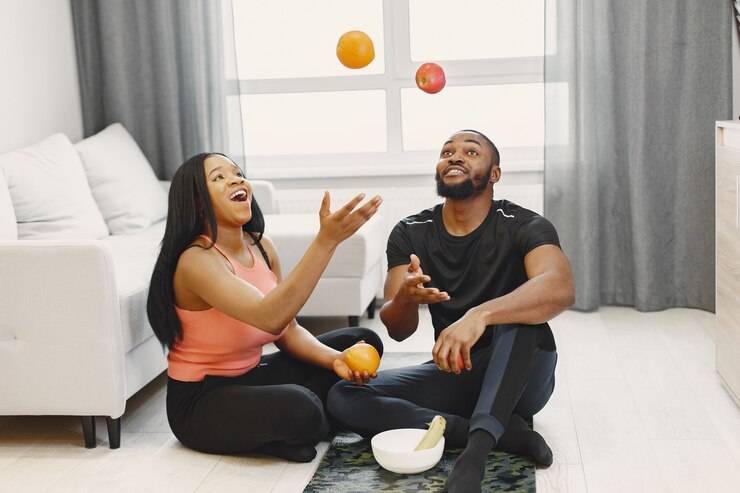When it comes to building a lasting and meaningful relationship, one of the most essential factors is knowing exactly what you want and need from a partner. Relationships are complex, with various dimensions that can deeply affect your emotional, mental, and physical well-being. A good match isn’t about finding someone who fits a checklist or someone who looks good on paper—it’s about finding someone who complements you, supports your growth, and aligns with your core values. However, in order to find that good match, it’s crucial to understand yourself first. This means taking time to evaluate your needs, desires, and expectations, and knowing what kind of relationship dynamic will best serve your happiness and fulfillment.
Understanding what you want and need from a relationship requires reflection, honesty, and sometimes difficult conversations with yourself. It is through this process that you can set realistic standards and avoid entering into relationships that might not bring out the best in you. This blog post explores how you can discover what you truly need in a relationship, why it’s important, and how you can use this knowledge to find a good match.
1. The Importance of Self-Awareness
Before you can begin looking for a good match, you must first know yourself. This process of self-awareness means understanding your personality, values, strengths, weaknesses, goals, and past experiences that have shaped your views on love and relationships. The more you know about yourself, the clearer it will be when a potential partner aligns with your needs.
Reflect on Your Past Relationships: One of the best ways to start understanding what you need is by looking at your previous relationships. What worked? What didn’t? Did you feel valued and respected, or were your needs ignored or unfulfilled? Were there patterns in your past relationships that you can learn from? By analyzing your past experiences, you can gain insights into what you need from a partner moving forward.
Know Your Values: Everyone has core values that are fundamental to who they are. Whether it’s honesty, trust, respect, kindness, or a specific life philosophy, it’s important to know what values are non-negotiable for you. If a partner doesn’t share these values, no matter how much you are attracted to them, the relationship is unlikely to be successful in the long term.
Consider Your Long-Term Goals: What are you looking to achieve in your life? Do you want to travel the world, focus on your career, or raise a family? Having a clear sense of your long-term goals helps you identify a partner who shares similar aspirations or at least supports and respects yours. A good match should be able to walk with you toward these goals, offering encouragement, shared experiences, and mutual growth.
2. Identifying Your Emotional Needs
Emotional compatibility is one of the most important aspects of any healthy relationship. Emotional needs vary from person to person, but recognizing and acknowledging yours is crucial in order to build a meaningful connection. Some people may require constant affirmation and affection, while others may need more space or independence.
Love Languages: Dr. Gary Chapman’s concept of the "Five Love Languages" is an excellent framework to consider when reflecting on your emotional needs. These languages—Words of Affirmation, Acts of Service, Receiving Gifts, Quality Time, and Physical Touch—describe how people express and experience love. Understanding your own love language and that of your partner is vital for nurturing a healthy, fulfilling relationship. If one person thrives on words of affirmation but the other on acts of service, there could be misunderstandings. Recognizing these differences can help both partners meet each other’s emotional needs more effectively.
Emotional Availability: Do you need a partner who is emotionally open and communicative, or do you value someone who is more reserved? Knowing the level of emotional openness you require helps you identify someone who can meet you where you are. Incompatible emotional availability can lead to feelings of frustration, loneliness, and unmet needs. It’s essential to understand the type of emotional connection you need to feel secure and loved.
3. Setting Boundaries and Expectations
Boundaries are the foundation of any healthy relationship. They help define personal space, protect individual needs, and prevent the buildup of resentment. Without clear boundaries, relationships can quickly become unhealthy or toxic.
Define Your Dealbreakers: What are the things that are absolutely non-negotiable for you in a relationship? These might include things like honesty, fidelity, respect, or shared interests. Dealbreakers are personal, and they differ from person to person. Having clarity about your dealbreakers will save you from entering into a relationship where your needs are not met. These boundaries help preserve your emotional health and ensure that you don’t settle for a relationship that does not align with your values.
Communicate Your Expectations: Understanding your expectations about relationships is crucial in ensuring that you and your partner are on the same page. Do you want someone who is equally ambitious and career-driven? Or are you looking for someone who is content with a more laid-back lifestyle? Are you hoping for a long-term commitment, or do you want to focus on something more casual at first? Communicating these expectations early on prevents misunderstandings and ensures that both parties know what to expect.
4. Considering Compatibility in Key Areas
While shared values are essential, compatibility in various life areas will also influence the success of a relationship. These areas might include communication styles, lifestyle choices, family dynamics, and future goals.
Communication Style: Do you need a partner who is open to discussing feelings and resolving conflicts through dialogue, or are you more comfortable with a quieter, less confrontational approach? Communication style plays a significant role in how conflicts are handled. Misunderstandings can arise when one partner prefers to talk things out and the other withdraws. Being compatible in communication ensures that both partners can express their needs and resolve differences constructively.
Lifestyle Choices: How do you envision your day-to-day life? Are you someone who enjoys a busy social life, frequent travel, and adventure, or do you prefer a quieter, more settled routine? Being aligned in your lifestyle choices means you’ll have a better chance of enjoying shared activities and experiences together. While differences can be enriching, having major disparities in how you want to live your life can cause strain in the relationship.
Family Dynamics: Family is an integral part of many people’s lives, and understanding how a potential partner relates to their family—and how they expect you to interact with them—can be a crucial factor in a relationship’s success. If you’re someone who values family closeness and regular gatherings, you’ll want to be with someone who appreciates that. Similarly, if you’re someone who prefers distance from family or wants a more independent lifestyle, this should align with your partner’s views.
5. Recognizing the Importance of Shared Growth
A good match isn’t just about compatibility; it’s also about growth. Being with someone who encourages you to grow as an individual is vital for a healthy relationship. A good partner will help you develop emotionally, intellectually, and spiritually. They should support your goals and ambitions while also challenging you in constructive ways.
Mutual Respect and Support: When two people share mutual respect, they are more likely to support each other in their personal and professional lives. This might mean encouraging each other’s career goals, being emotionally supportive during tough times, or learning together as a couple. A good partner will be invested in both your individual and shared growth.
Shared Interests and Hobbies: Having shared activities or hobbies can create a sense of closeness and deepen your bond. While it’s important to maintain your own personal interests and independence, having a few things you enjoy doing together can strengthen your relationship. Whether it’s a love for hiking, cooking, or watching movies, shared experiences allow for connection and fun.
6. Trust Your Instincts and Take Your Time
Lastly, when it comes to finding a good match, trust your instincts. Your gut feeling can often give you valuable insights into whether someone is the right fit for you. Don’t rush the process—take your time to get to know your potential partner, understand their behaviors, and assess how they align with your needs.
A good match will feel natural over time, and while there may be challenges, it will be clear that you’re building a solid foundation of trust, respect, and mutual support. The best relationships are built on strong communication, shared values, and a genuine connection.
Conclusion
Finding a good match is about knowing yourself, your needs, and your desires before seeking a partner. By reflecting on your past relationships, identifying your emotional needs, setting clear boundaries, and evaluating compatibility, you create a strong foundation for a lasting and fulfilling partnership. Relationships are about mutual growth, support, and respect, and by understanding what you want and need, you can navigate the journey toward finding a partner who complements and challenges you in all the right ways. Ultimately, knowing yourself will lead you to the person who is truly the best match for you, making love and connection both meaningful and enduring.




No comments yet
Be the first to share your thoughts!